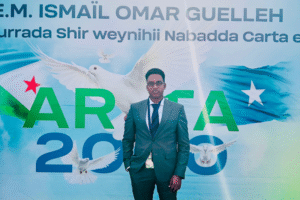
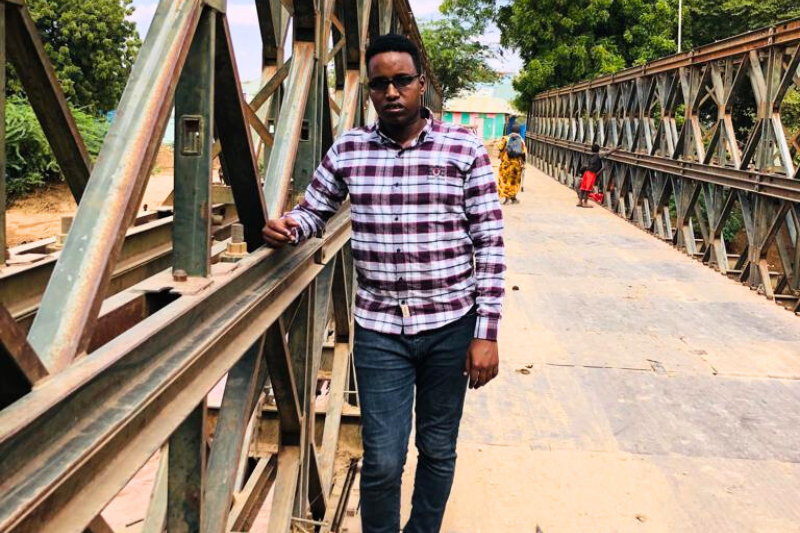
I have had the privilege to travel to many towns in Somalia in the past eight years, but I did not visit any of the towns in the Gedo region. Recently, however, I had an assignment in the border town of Dolow, and everyone I asked told me that it is the safest town in the Gedo region. Nevertheless, I departed Mogadishu feeling unsure about how my trip would work out.
The town is highly securitized. I started to feel this while still in Mogadishu airport. A security officer checking the boarding pass/card of travelers interrogated me. He asked if I am from Dolow and if I am traveling there for work. He then asked for my ID card and I explained to him why I was traveling to the town.
The airplane transited in the Luuq district and took new passengers (including soldiers with uniforms) onwards to Dolow. One of those who traveled with us from Luuq was a district commissioner. People were greeting him saying ‘hi commissioner’. He was the person accompanied by the soldiers. His face was not familiar to me, and I had not seen him before (even on social media). A few hours later, while at the hotel I was staying at, I watched a video circulating on social media about the commissioner saying harsh words about the missing/dead intelligence agent Ikran Tahlil and her mother. He was the Luuq district commissioner. He stayed with me at the same hotel for two days and then left.
By Friday noon, we had landed at Dawa airport in Dolow. The airport name refers to the Dawa River that joins another river in the town to form the Jubba River. The town is under the jurisdiction of the federal government. The security is very tight. My colleague was waiting for me at the airport. He had already prepared an official letter informing the security agencies about my trip and the reason I was coming to the city. Copies of the letter were given to the migration office at the airport, and the NISA, and the police offices. An officer at the police station, an old man, insisted that he had to see me. I accompanied my colleague and met him. There were several people at the police station waiting for a guarantor. I was informed that all people who come to the city directly report to the police station and can only go about their business when guaranteed by a known person in the town.
The town is full of security agents. A NISA officer came to the hotel to see me. I was advised to have a copy of the official letter of my visit shared with security agencies in case I am stopped and interrogated.
Dolow was hot and had an electricity problem. Although this may not always be the case, the electricity was not stable during my stay in the town. Most of the time, the electricity was cut during the day. There was a night that the electricity went off at around 9:00 pm. Although I was living in the second story of the hotel, it was very hot, and I could not sleep well until the electricity returned at around midnight. I had to sleep with the air conditioner every night because of the severe heat.
Due to the city’s proximity to Ethiopia, Ethiopians (mostly Oromo) work in the town. The cleaner and receptionist of the hotel I was staying in were Ethiopians. The receptionist speaks a good Somali, and I did not recognize that he was not a Somali until I was told about his background. An Ethiopian lady was working at a cafeteria next to the hotel. Other Ethiopians also work in the main restaurants as waiters. The Ethiopian bun is served in many teashops and injera is available in most of the main restaurants.
After all, Dolow is a border town. A bridge over the Dawa River divides Dolow Somalia and Dolow Addo Ethiopia. My colleague and I went to Dolow Addo. Near the border bridge, two Somali soldiers were there. No vehicle is allowed to cross the bridge. The soldiers frisk check pedestrians using their hands. Near the border bridge, there is a famous mango tree. There were many soldiers near the mango tree, and the commissioners of the town were present there. I was told that the district administration and other government heads come to meet under the mango tree although they have offices in another location.
In the middle of the bridge, there are the two flags of Somalia and Ethiopia, standing a meter or so apart. Children were swimming in the river. On the Ethiopian side of the bridge are Somali soldiers. Similar to those on the other side of the border, they also check and screen pedestrians. I was informed that near the border is a military camp and Ethiopian soldiers used to stay there and check pedestrians, but they were called to participate in the Tigray war and were replaced by Liyu Police of the Somali Region of Ethiopia.
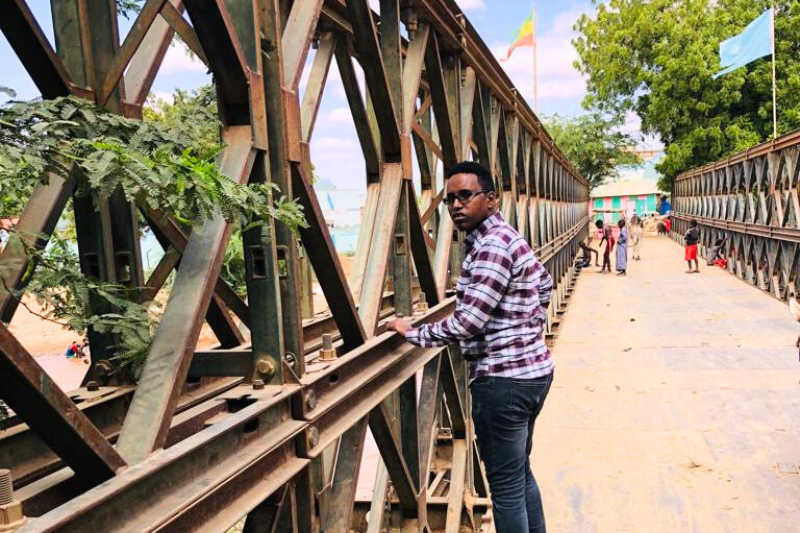
At Dolow Addo, there are very old vehicles near the bridge that work in between the market and the border crossing. When I asked a driver about why they could not buy brand new vehicles and are using these obsolete machines, he told me that the cost of the number plate in Ethiopia is almost equal to the cost of the vehicle and that they cannot buy new vehicles since new cars need new plate numbers.
Dolow Addo is bigger and has a higher population than Dolow Somalia. Most of the population is made up of Somalis, but the Ethiopians (Oromo) own most of the big businesses. Unlike the tight security in Dolow Somalia, no one asks you why you are here and what you are doing. We had lunch at a restaurant known as Geel Qaad Restaurant owned by a Somali businessman who used to have a restaurant in Dolow Somalia some years ago. We walked the streets for few minutes, but we couldn’t continue due to the sweltering heat of the sun.
Dolow is the place where the Jubba River forms. I had the chance to visit a historic place where three rivers meet. Dawa River goes through Ethiopia and parts of Kenya and Somalia. It is the river we crossed when we went to the Dolow Addo. Ganale River starts from the Ethiopian mountains east of Aleta Wendo. The Ganale River and Dawa River join in Dolow to become the Jubba River. The Ganale River is wider than the Dawa River. The Jubba River starts from where the two rivers meet. We took photos and the three rivers in the background. It is also a place where the city youth come every afternoon for photos and videos for their social media. When the federal government delegates travel to Dolow, I was told that they rarely miss visiting this place. My friend was telling me several ministers and security officers who visited this historic place that brings together the three rivers.
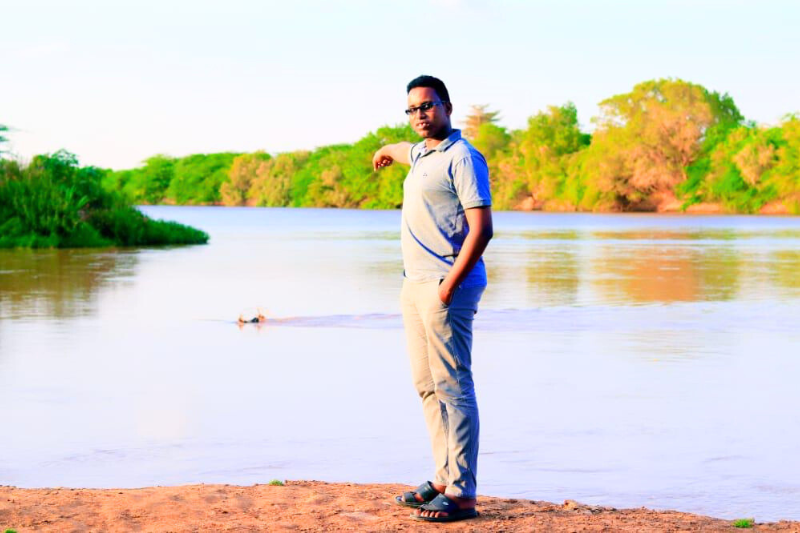
I met welcoming young people in Dolow. I often caught up with and had afternoon tea with youth doing well in the city. The Somalia flag decoration was everywhere in the cafeteria we often visited in the afternoon. One of the youth told me that Dolow is the only town in Gedo that al-Shabaab had never managed to capture.
Despite the hot weather and the intense/high security alert, traveling to Dolow was a much-needed adventure. It enabled me to explore places that I have never imagined visiting and meet great people. I wish success to the people in Dolow.
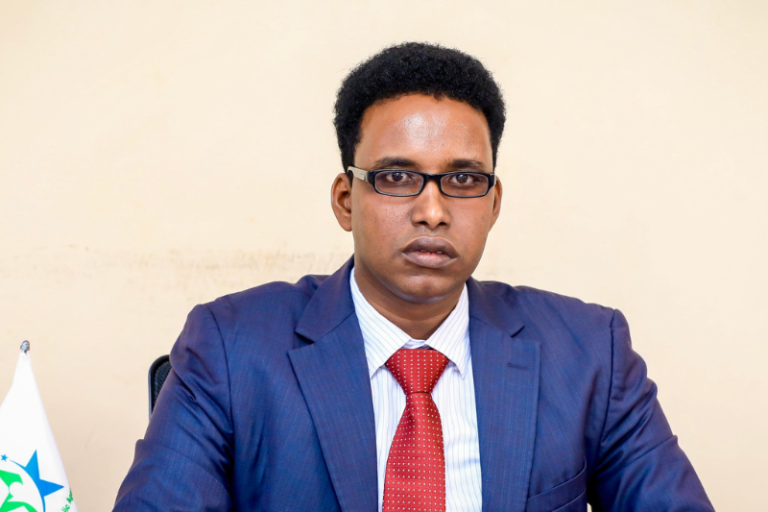
Is a researcher, teacher, podcaster and blogger. His work over the last decade has focused on teaching and researching governance, justice and social services in Somalia.


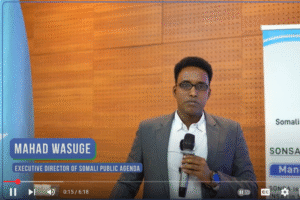

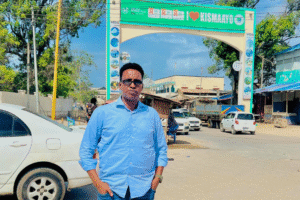
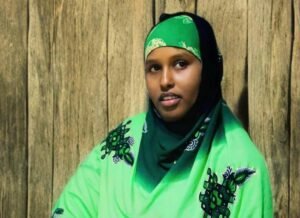
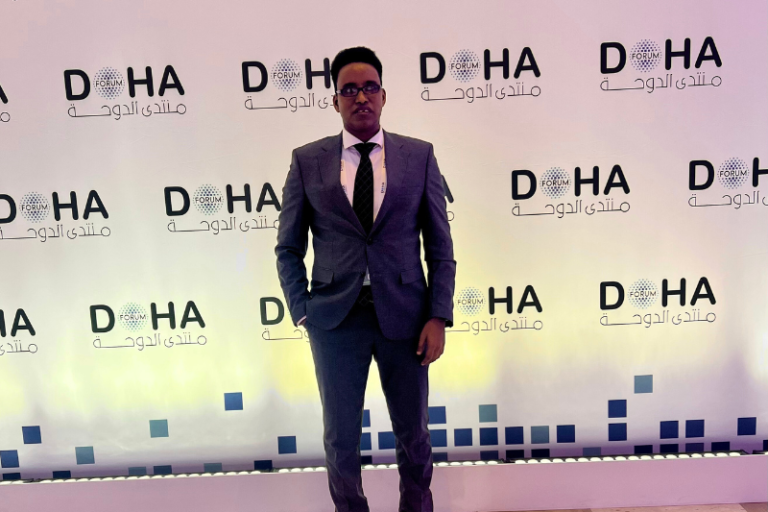

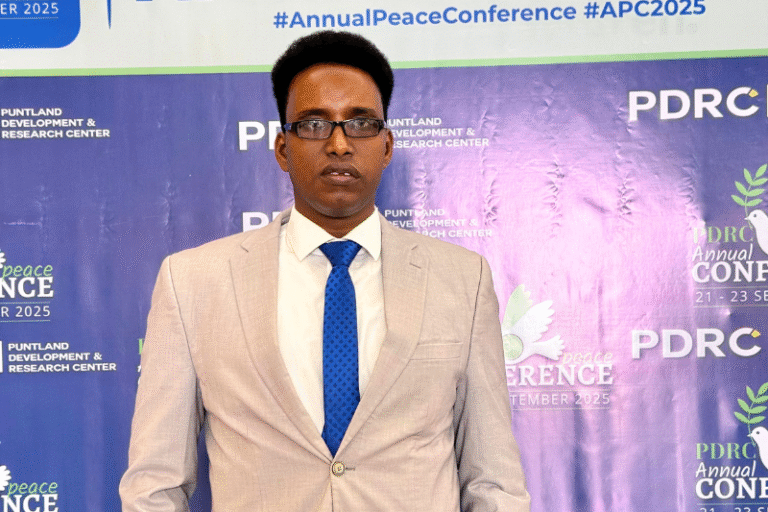

3 Responses
Well Mr mahad this was enriching trip not only for you but for me reading your experience there and imagining how it could be through your blog is quite the knowledge i needed to get from Doolow the border town, the river geography, the life at the two different sides of the town, the interaction with the Ethiopians and the security situation as whole thanks for sharing your experience with us and i wish to get the chance one day to explore my home country as whole with peace.
Thank you Ibrahim. I am glad that my blog post was informative and educational to you and other readers. Mahadsanid
I have been to Dolow Somalia in April this year with two senior ministers of government, we spent one night there, so far dolow it’s hottest place that i have seen in Somalia.
The maango three is popular place where people meet and welcomed their guests,